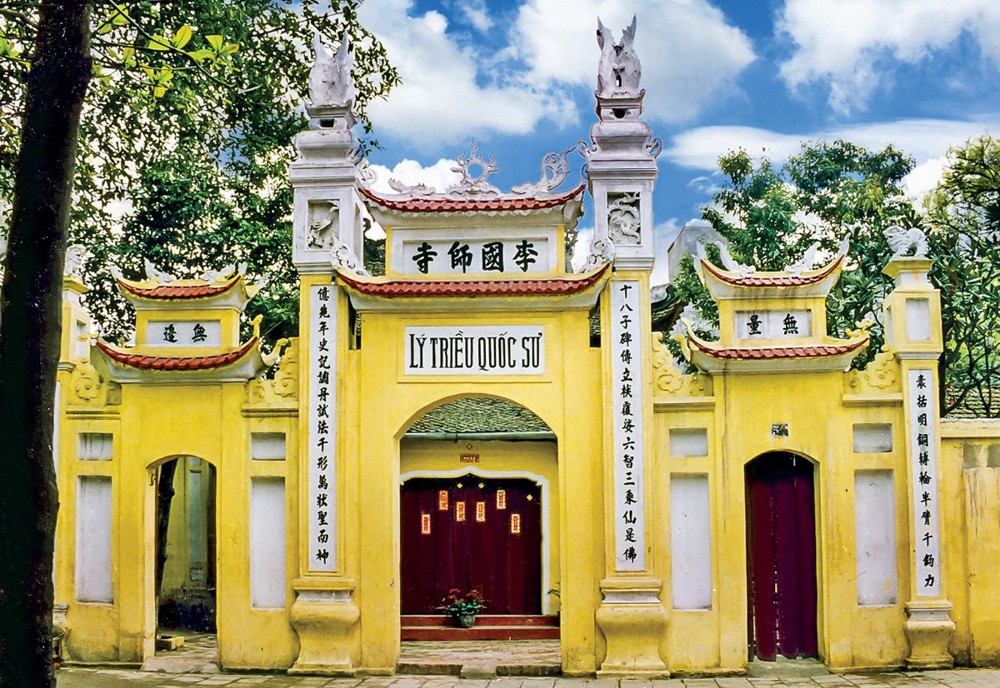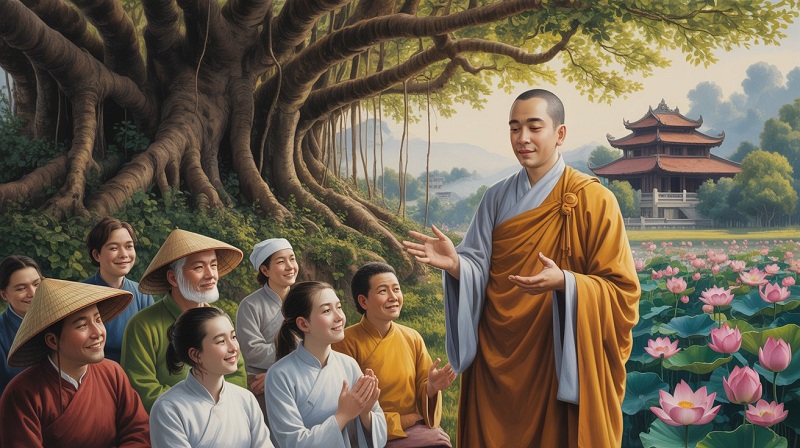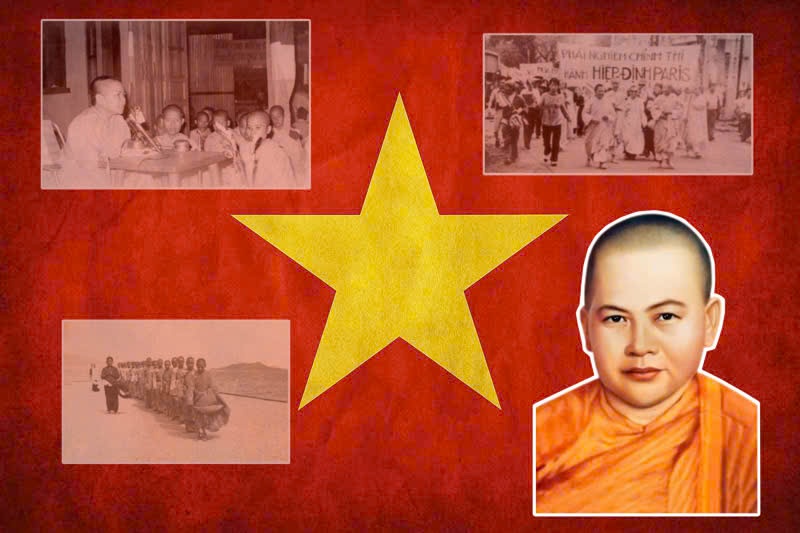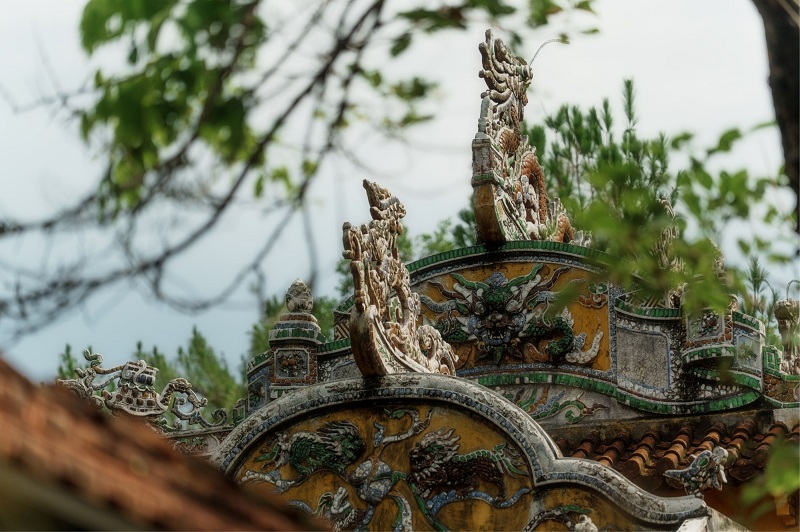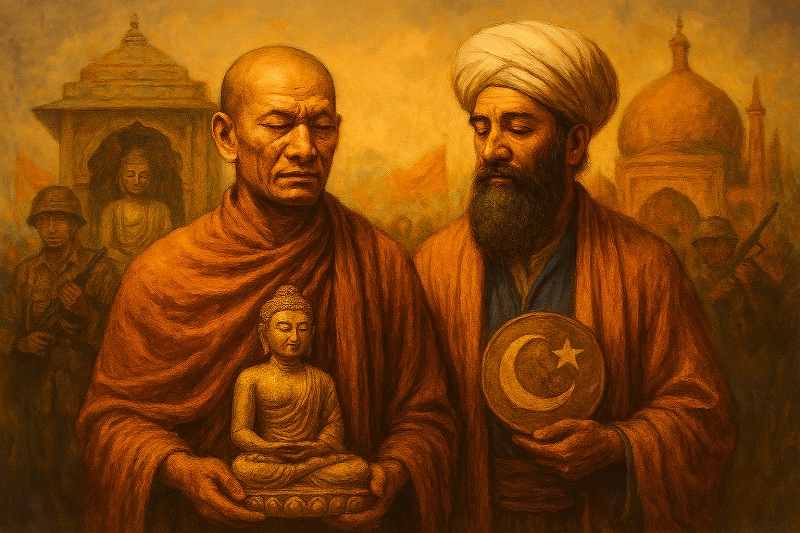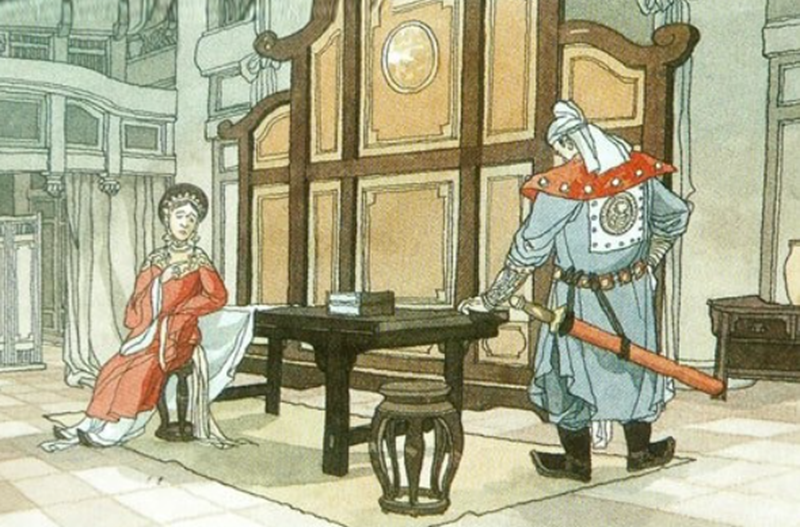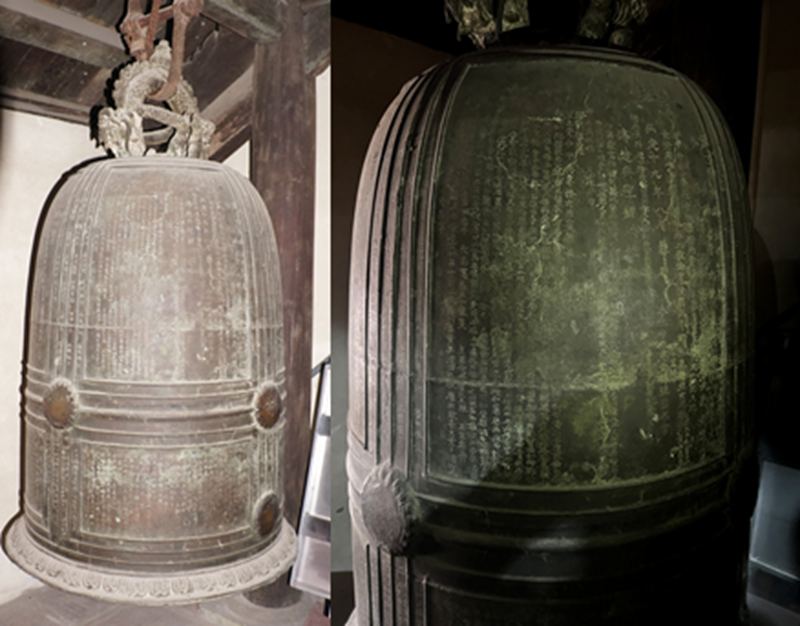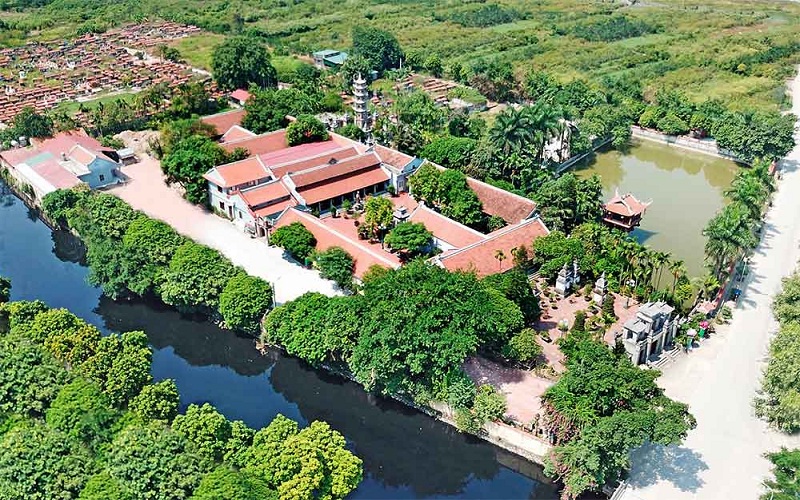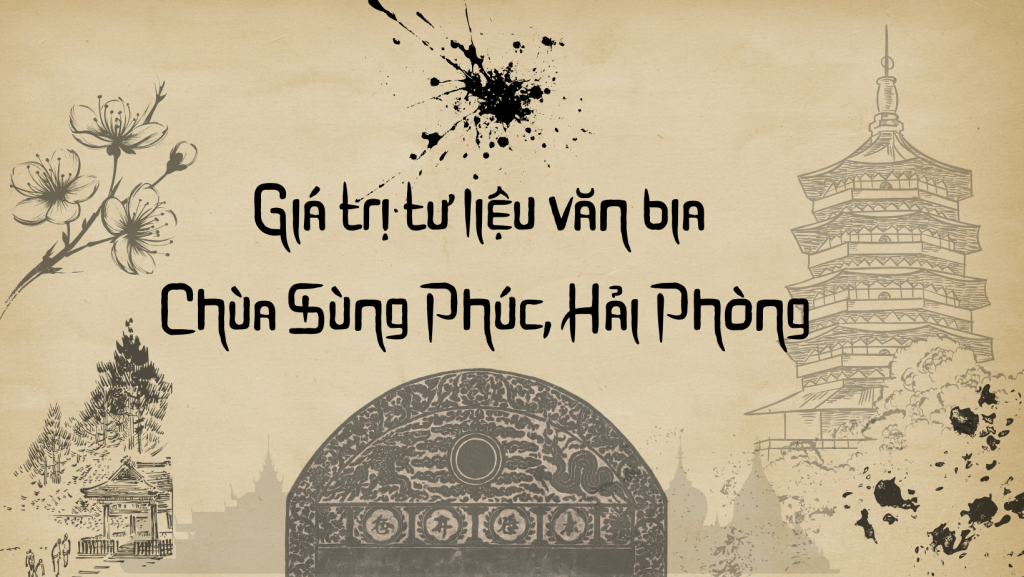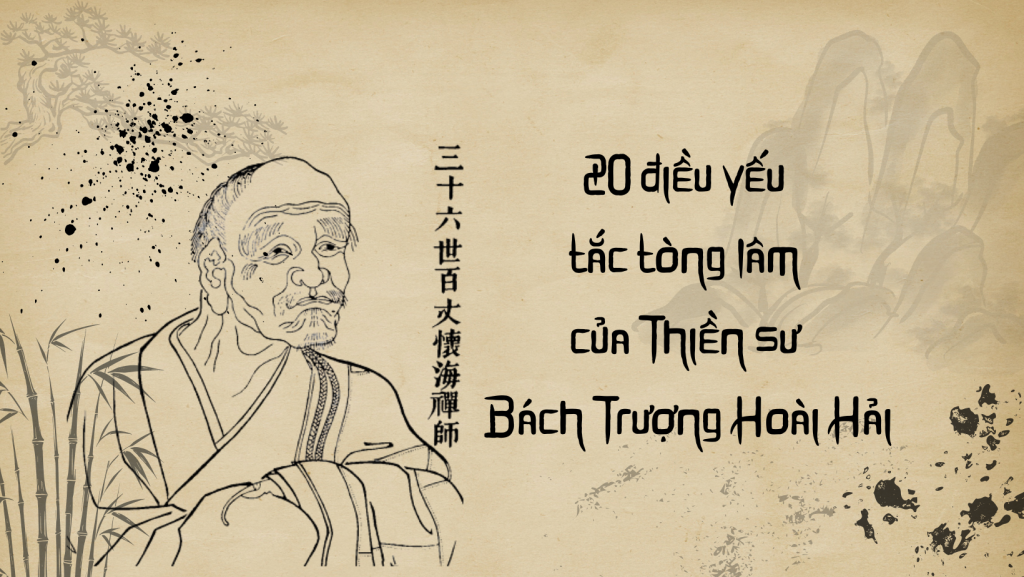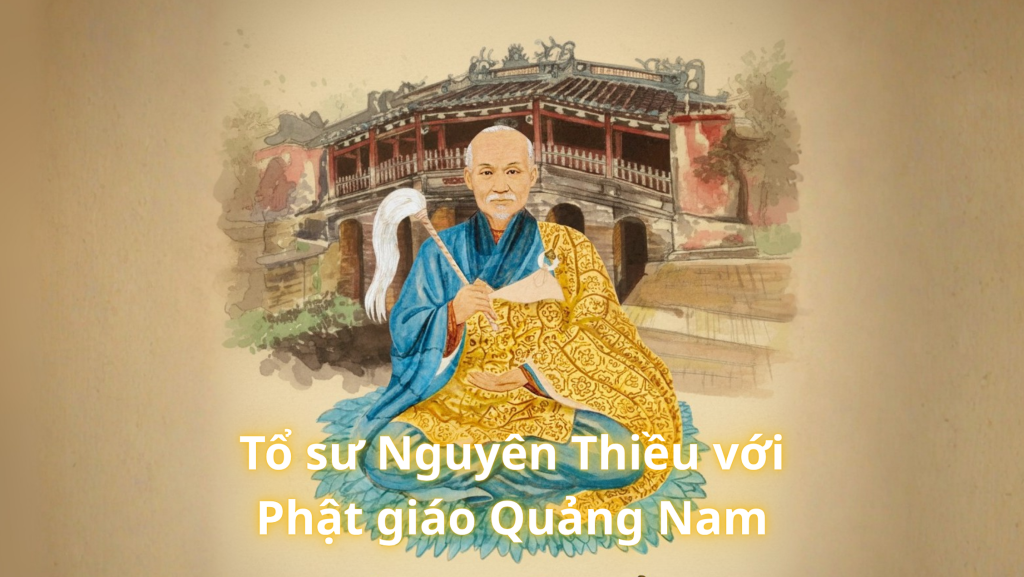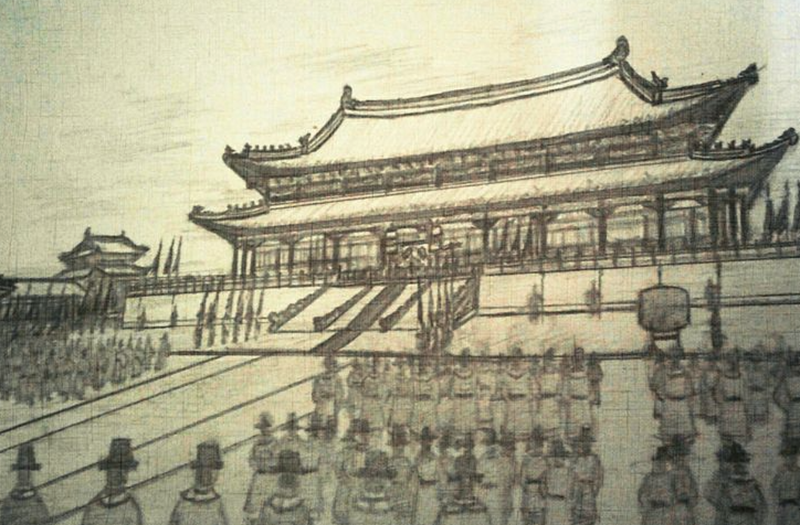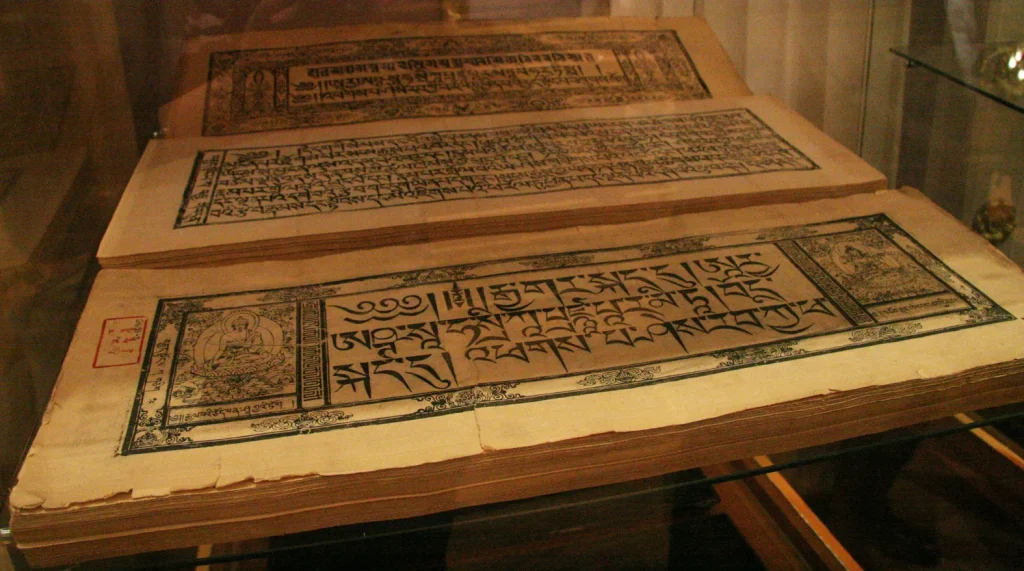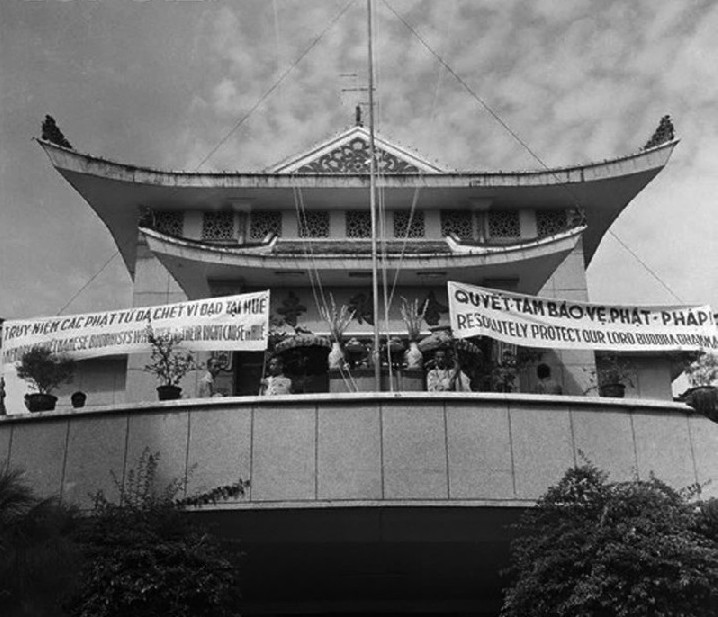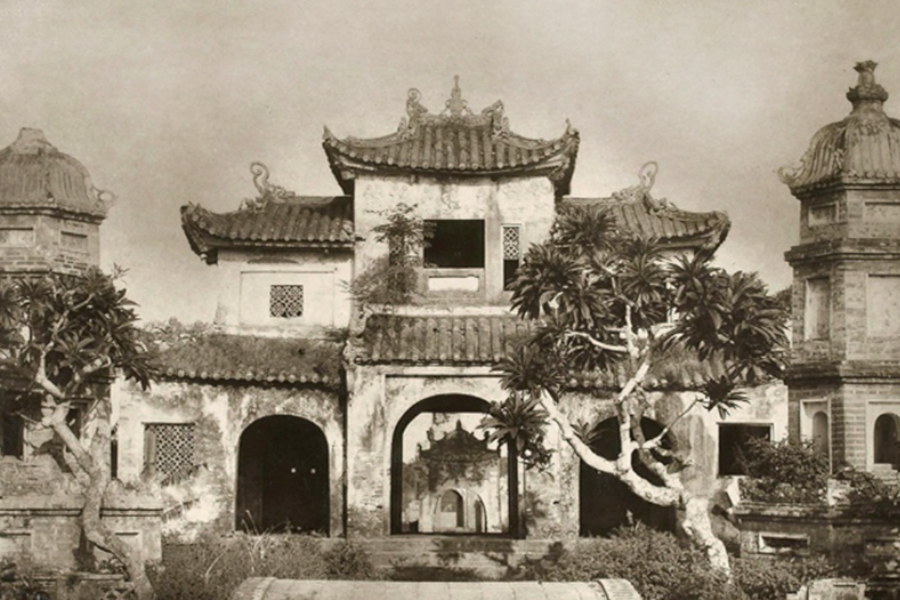Tại Việt Nam, trong Ngày Vesak Quốc tế của Liên hợp quốc tại Thành phố Hồ Chí Minh từ ngày 5 đến ngày 8 tháng 5, Thượng tọa Bhikkhu Bodhi đã có bài phát biểu quan trọng vào ngày 6 tháng 5. Chủ đề của bài phát biểu: “Bảo vệ Nhân phẩm khỏi Mối đe dọa của Chủ nghĩa hư vô đạo đức”. Trong bài phát biểu kết thúc, ngài tập trung vào Gaza như là “tâm điểm của cuộc đấu tranh giữa các thế lực của chủ nghĩa hư vô đạo đức và nghĩa vụ bảo vệ nhân phẩm của chúng ta”.
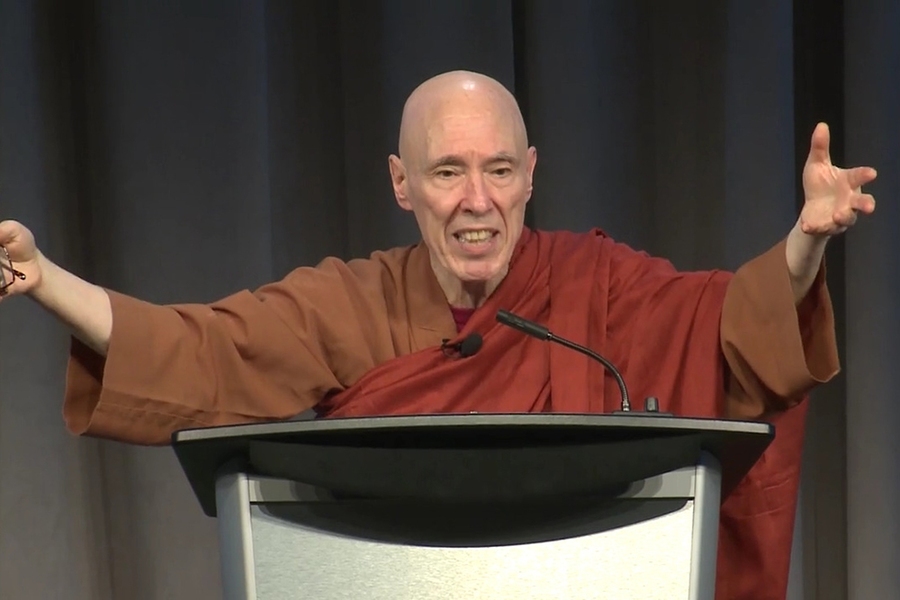
Ý Nghĩa của Phẩm Giá Con Người
Thật khó để đưa ra một định nghĩa đơn giản về phẩm giá con người mà mọi người đều đồng ý. Phẩm giá con người là một khái niệm mà chúng ta dường như hiểu một cách trực giác hơn là qua một định nghĩa chính thức. Tuyên ngôn Quốc tế Nhân quyền của Liên Hợp Quốc mở đầu bằng tuyên bố rằng “mọi người sinh ra đều được tự do và bình đẳng về phẩm giá và quyền.” Trong các điều khoản tiếp theo, bản tuyên ngôn này nêu rõ các quyền xuất phát từ ý tưởng về phẩm giá con người, trước hết là quyền được sống, tự do và an toàn cá nhân; quyền tự do tư tưởng và biểu đạt; và nhiều quyền khác nữa. Việc vi phạm phẩm giá con người bao gồm các hành động như bóc lột và đàn áp người khác, tra tấn và trừng phạt hạ nhục họ, và làm nhục họ vì địa vị xã hội, chủng tộc, tôn giáo hay bản dạng giới.
Khái niệm phẩm giá con người hàm ý rằng mỗi cá nhân đều có giá trị nội tại và vì vậy xứng đáng được tôn trọng và quan tâm. Ngay cả tù nhân cũng có những quyền nhất định mà chính quyền phải công nhận.
Các văn bản Phật giáo không nói rõ về phẩm giá con người, nhưng tôi cho rằng ý tưởng này ẩn tàng trong các giới luật Phật giáo. Giới luật dạy rằng ta nên đối xử với người khác theo cách mà ta mong họ đối xử với ta. Ta không nên giết hại, trộm cắp tài sản, vu khống hay làm tổn thương họ theo bất kỳ cách nào, vì mỗi người đều quý trọng sự sống, an toàn và hạnh phúc của chính mình. Các phẩm hạnh như từ bi và lòng yêu thương, vốn là cốt lõi của đạo đức Phật giáo, cũng góp phần củng cố cam kết đối với phẩm giá con người.
Xu Hướng Hướng Tới Hư Vô Đạo Đức
Giờ đây tôi chuyển sang phần hai của bài nói chuyện, về những yếu tố đang hiện hữu trong thế giới ngày nay, đe dọa phẩm giá con người và đẩy chúng ta tới chủ nghĩa hư vô đạo đức. Đây là những hành vi giả định rằng con người không có giá trị nội tại, và do đó có thể bị hạ thấp, bóc lột, tra tấn và thậm chí bị giết mà không gây cắn rứt lương tâm.
Tôi sẽ đề cập ngắn gọn đến bốn yếu tố đang đẩy chúng ta tới chủ nghĩa hư vô đạo đức, mặc dù vẫn còn nhiều yếu tố khác mà tôi không có thời gian để thảo luận.
(1) Yếu tố đầu tiên là hệ thống kinh tế xuyên quốc gia được điều khiển bởi chủ nghĩa tư bản săn mồi không được kiểm soát. Hệ thống này hoạt động dựa trên giả định rằng mục tiêu của một tập đoàn là tối đa hóa lợi nhuận. Mô hình này xem tất cả tài sản phi tiền tệ—đất đai và sông ngòi, khoáng sản và cây cối, động vật và con người—như phương tiện để tạo ra lợi nhuận tài chính. Lợi nhuận khổng lồ làm giàu cho các giám đốc điều hành và nhà đầu tư, nhưng mang đến đau khổ và tuyệt vọng cho nhiều người bên ngoài vòng tròn đặc quyền đó.
Các công ty dầu mỏ và hóa chất gây ô nhiễm môi trường và đẩy người bản địa ra khỏi vùng đất tổ tiên. Các chuỗi thức ăn nhanh bóc lột người lao động với mức lương không thỏa đáng và sa thải họ khi họ không còn làm việc hiệu quả. Các công ty dược phẩm nâng giá thuốc lên mức mà nhiều người không thể chi trả để duy trì sự sống.
Chủ nghĩa tư bản doanh nghiệp tạo ra khoảng cách sâu rộng giữa siêu giàu và phần còn lại của thế giới. Ngày nay, 1% người giàu nhất sở hữu 43% tài sản toàn cầu; 50% dưới cùng chỉ sở hữu khoảng 1%. Bất bình đẳng nghiêm trọng này gây ảnh hưởng tiêu cực đến sức khỏe thể chất và tinh thần. Những người ở tầng lớp thấp mất đi lòng tự trọng và nhiều người rơi vào “cái chết trong tuyệt vọng” bởi rượu, ma túy, sức khỏe kém và tự sát.
(2) Yếu tố thứ hai là vai trò xâm lấn của công nghệ máy tính trong đời sống con người. Trong khi internet mang lại nhiều lợi ích to lớn, nó cũng đặt ra những mối đe dọa nghiêm trọng đến phẩm giá con người. Những người làm chủ hệ thống này có thể thu thập hàng tỷ thông tin cá nhân của chúng ta chỉ trong vài giây. Họ có thể sử dụng thông tin đó để tác động đến quan điểm chính trị, thay đổi lựa chọn tiêu dùng, làm hại đến cơ hội việc làm và phá hoại địa vị pháp lý của chúng ta. Công nghệ máy tính là một tài sản quý báu, nhưng nếu không được quản lý đúng cách, các phương tiện điện tử có thể quay lại gây hại, thậm chí trở thành công cụ của chủ nghĩa toàn trị.
Internet cũng trao cho những kẻ độc tài tiềm năng con đường dễ dàng lên nắm quyền. Các dòng tweet và tin nhắn tức thời có thể kích động đám đông giận dữ, khơi mào bạo lực, và phá hủy cơ hội của các chính trị gia đối lập. Những lời nói dối vang vọng trên internet, được lặp lại đến mức khiến chúng ta tin đó là sự thật.
(3) Trong những năm gần đây, nhiều nền dân chủ lớn đã biến thành những chế độ độc tài cánh hữu do các nhà lãnh đạo chuyên chế thống trị. Những kẻ độc tài thường lên nắm quyền bằng cách chia rẽ, lôi kéo người ủng hộ của mình—những người họ gọi là “người dân thực sự”—chống lại các nhóm họ biến thành vật tế thần: người nhập cư, người đồng tính, người chuyển giới, người khác chủng tộc, hoặc tín đồ của “tôn giáo sai trái.” Nếu họ giành được quyền lực, họ có thể bỏ tù, trục xuất hoặc “làm mất tích” nạn nhân của mình. Sau khi ẩn náu trong bóng tối suốt nhiều thập kỷ, chủ nghĩa phát xít đang quay trở lại, lần này với ngôn từ nhẹ nhàng hơn nhưng vẫn tiếp tục lôi kéo bằng những luận điệu cũ như oán giận sắc tộc, bất an kinh tế, và khao khát trừng phạt kẻ thù.
Nhiều học giả đã cảnh báo rằng nền dân chủ rất mong manh và cần được bảo vệ cảnh giác. Nếu không cẩn thận, chúng ta có thể sống trong một thế giới đảo lộn, nơi ta vỗ tay tán thưởng kẻ hành hạ mình như thể họ là vị cứu tinh.
(4) Yếu tố thứ tư dẫn đến hư vô đạo đức là cách tiến hành chiến tranh hiện nay. Mặc dù mọi cuộc chiến đều vi phạm phẩm giá con người, nhưng chiến tranh ngày nay đã vượt quá mọi chuẩn mực cơ bản của sự tử tế. Các quốc gia tham chiến cố tình phá hủy bệnh viện, trường học, nhà thờ và nhà máy điện. Họ bắt cóc trẻ em và tra tấn tù binh. Họ giết hại dân thường và đăng ảnh nạn nhân lên mạng xã hội. Họ thản nhiên coi cái chết của dân thường là “thiệt hại phụ.” Các hiệp ước quốc tế được xây dựng sau Thế chiến thứ hai đã quy định ranh giới hành vi hợp pháp trong chiến tranh, nhưng ngày nay, các chính phủ đang giẫm đạp lên những quy định đó, bóp méo những rào chắn duy trì trật tự đạo đức toàn cầu.
Chống Hư Vô Đạo Đức bằng Khẳng Định Phẩm Giá
Điểm chung khiến bốn xu hướng này trở thành dạng của hư vô đạo đức chính là dự án phi nhân hóa. Muốn bóc lột lao động lương thấp, bạn phải giả vờ rằng họ không có nhu cầu con người. Muốn thu thập dữ liệu cá nhân, bạn phải làm ngơ trước những con người thực đằng sau các con số. Muốn nắm quyền bằng cách tấn công người yếu thế, bạn phải xem họ là đối tượng chính đáng của sự thù ghét. Muốn giết hại dân thường và tra tấn tù nhân, bạn phải tước đoạt phẩm chất con người của họ.
Từ đó có thể thấy, chìa khóa để chống lại hư vô đạo đức là khẳng định phẩm giá con người. Chúng ta phải soi rọi ánh sáng vào nhân tính của những người bị đe dọa. Chúng ta phải thấy bản thân mình nơi người khác, ôm họ vào lòng và hành động kiên quyết để bảo vệ họ.
Xã Hội Có Phẩm Giá Sẽ Trông Như Thế Nào?
Tôi chuyển sang phần ba của bài nói chuyện, đặt ra câu hỏi: “Một xã hội như thế nào, phù hợp với giáo lý Phật giáo, có thể duy trì và nâng cao phẩm giá con người trong thế giới hôm nay?” Để chống lại các thế lực thù địch với phẩm giá con người, chúng ta không thể chỉ dừng lại ở việc chỉ ra các nguy cơ. Chúng ta còn phải đưa ra một viễn cảnh thay thế cho hệ thống hiện tại—một mô hình trật tự xã hội khẳng định phẩm giá con người, một thế giới mà mọi người đều chiến thắng.
Tôi xin đề xuất sáu trụ cột cho một trật tự xã hội hiện thân lý tưởng về phẩm giá con người:
(1) Một môi trường tự nhiên an toàn, tươi đẹp và phát triển, nơi chúng ta tránh được hiểm họa từ biến đổi khí hậu và ô nhiễm công nghiệp. Điều đó đòi hỏi ta phải giảm chất thải độc hại, chuyển nhanh sang các nguồn năng lượng sạch và tái tạo, chia sẻ lợi ích cho mọi người trên hành tinh. Đồng thời, chúng ta phải bảo vệ các loài sinh vật khác ngoài con người, giữ gìn rừng, sông, hồ và vương quốc động vật đa dạng.
(2) Một thế giới an toàn cũng là một thế giới hòa bình, nơi không còn chiến tranh để giải quyết xung đột. Các tranh chấp giữa các quốc gia nên được giải quyết bằng đối thoại, hòa giải và thỏa hiệp, với Liên Hợp Quốc là nền tảng phù hợp cho các cuộc đàm phán. Mục tiêu phải là xóa bỏ hoàn toàn vũ khí hạt nhân và các loại vũ khí hủy diệt hàng loạt.
(3) Trong lĩnh vực xã hội, ta nên hướng đến một nền dân chủ chân chính hơn, nơi công dân có quyền định đoạt các quyết định quan trọng. Dân chủ lành mạnh phải có luật pháp nghiêm ngặt để ngăn chặn các tập đoàn và tỷ phú thao túng bầu cử bằng tiền tài trợ và nhóm lợi ích. Chính phủ phải phản ánh ý chí của nhân dân, chứ không phải của các tập đoàn khổng lồ và giới siêu giàu.
(4) Một xã hội công bằng cũng cần có mức sống tương đối bình đẳng cho mọi cư dân, kể cả người không phải công dân. Dù sự bình đẳng tuyệt đối là không khả thi, nhưng mọi người dân cần có đủ điều kiện vật chất cơ bản: nơi ở, thức ăn dinh dưỡng, quần áo, chăm sóc sức khỏe. Các nghiên cứu cho thấy, xã hội bình đẳng nhất cũng là nơi hạnh phúc nhất; còn xã hội bất bình đẳng nhất lại là nơi bạo lực và căng thẳng nhất.
(5) Một nền dân chủ năng động cần có giáo dục toàn diện giúp công dân thực hiện nghĩa vụ. Trường học cần có các môn bắt buộc về nhân văn, khoa học xã hội, đạo đức và công dân, đồng thời rèn luyện tư duy phản biện. Chính phủ nên hỗ trợ mạnh mẽ giáo dục đại học và cấp học bổng cho sinh viên nghèo.
(6) Phải đảm bảo bình đẳng giới ở mọi cấp độ xã hội để phụ nữ có thể phát triển toàn diện. Trong lĩnh vực Phật giáo, các vị lãnh đạo tăng đoàn nên công nhận đầy đủ Ni đoàn và cho phép truyền giới tỳ-kheo-ni trong truyền thống của mình. Giới luật Phật giáo có những phương tiện để hợp pháp hóa việc truyền giới tỳ-kheo-ni, và nếu có tư duy cởi mở, linh hoạt, chúng ta có thể áp dụng chúng.
Hiện Thực Hóa Phẩm Giá Con Người
Tiếp theo, tôi muốn nêu ra bộ giá trị cần thiết để hiện thực hóa một trật tự xã hội khẳng định phẩm giá con người. Tôi gọi bộ giá trị này, bắt rễ trong đạo đức Phật giáo, là “tâm từ bi có lương tri.” Đây không chỉ là sự cảm thông thụ động với nỗi đau của người khác, mà là một cam kết tích cực đứng lên chống lại các hệ thống áp bức và theo đuổi những con đường thay thế vì lợi ích chung.
Giá trị cốt lõi của “tâm từ bi có lương tri” là tinh thần đoàn kết, khả năng đồng cảm với người khác. Tinh thần này xuất phát từ nhận thức về sự nhất thể căn bản của mọi người, sự hiểu rằng tất cả đều mong được an lành, hạnh phúc và an toàn; tất cả đều muốn tránh bạo lực và khổ đau. Đoàn kết sinh ra tình yêu và lòng từ bi: tình yêu là mối quan tâm chủ động đến hạnh phúc người khác; lòng từ bi là khát vọng giải thoát con người và chúng sinh khỏi khổ đau.
“Là những người lãnh đạo Phật giáo, chúng ta không nên đứng im lặng bên lề. Chúng ta phải nắm bắt yêu cầu của thời đại, tìm ra tiếng nói của mình và dùng nó để kêu gọi hòa bình và công lý.”
Để tâm từ bi có lương tri thành công, ta còn cần một phẩm chất nữa: dũng khí, tương ứng với ba-la-mật về tinh tấn (viriya) và quyết định (adhitthana). Trong công việc của lòng từ bi có lương tri, dũng khí nghĩa là sẵn sàng làm theo tiếng gọi của lương tâm, hành động quả cảm, không sợ hãi, vì tất cả những ai đang bị đe dọa về phẩm giá và sự sống. Tâm từ bi này không chỉ là dễ thương hay tốt bụng. Nó đòi hỏi dũng khí để đấu tranh, nhẹ nhàng và phi bạo lực, cho các nguyên tắc phù hợp với tình yêu và lòng từ bi. Nó yêu cầu ta sẵn sàng hành động ngay cả khi đối mặt với nguy hiểm cá nhân.
Lời Kết
Tôi xin kết thúc bài nói chuyện bằng một vài nhận định cá nhân. Trước hết, tôi muốn nói rằng những lời này là quan điểm cá nhân của tôi. Tôi không đại diện cho Ủy ban Vesak Liên Hợp Quốc, Chính phủ Việt Nam, hay bất kỳ tổ chức nào khác.
Tôi muốn kết thúc bằng cách soi rọi một khu vực có thể gọi là tâm điểm của cuộc đối đầu giữa các thế lực hư vô đạo đức và nghĩa vụ bảo vệ phẩm giá con người. Đó là Dải Gaza, nơi một cuộc diệt chủng kinh hoàng đang diễn ra, một chiến dịch tàn sát có thể thấy rõ từng giờ trên màn hình tivi và máy tính của chúng ta. Đây là nơi mà cam kết đối với phẩm giá con người phải thôi thúc chúng ta dấn thân vào cuộc đấu tranh không ngừng với các thế lực hư vô đạo đức, những kẻ đang tiến hành tàn sát với ngôn ngữ ngoại giao trơn tru và kho vũ khí hủy diệt hàng loạt.
Phản ứng của Israel đối với cuộc tấn công kinh hoàng của Hamas năm 2023 đã phá vỡ mọi ranh giới đạo đức, đe dọa làm tan vỡ trật tự toàn cầu dựa trên luật pháp quốc tế và nhân quyền. Chỉ trong 18 tháng, Israel đã giết hơn 55.000 người tại Gaza, gần 70% là phụ nữ và trẻ em. Bom đạn của họ đã biến nhà ở, bệnh viện, trung tâm cứu trợ và đại học thành tro bụi; lực lượng của họ đã hành quyết giáo viên, bác sĩ, nhà báo và nhân viên cứu trợ một cách lạnh lùng. Trong hai tháng qua, Israel áp đặt phong tỏa hoàn toàn Gaza. “Phong tỏa hoàn toàn” nghĩa là: không có thực phẩm, không nước sạch, không điện, không thiết bị y tế.
Người Việt thuộc thế hệ lớn tuổi hơn hiểu rõ cảm giác phải đối mặt với những trận bom hàng ngày, khi bạn không biết liệu ngày mai bạn hay những người thân yêu của mình còn sống hay không. Giờ đây, người dân Gaza đang phải trải qua một thử thách tương tự. Ở Gaza, bạn có thể chứng kiến hai mươi người thân trong gia đình bị xóa sổ chỉ bởi một quả tên lửa. Con cái bạn có thể đã mất tay, mất chân. Bạn không thể tiếp cận dịch vụ y tế, và cả gia đình bạn đang bị bỏ đói một cách có chủ đích. Làm sao chúng ta có thể chấp nhận điều này?
Xin hãy nhớ rằng tôi không nhìn cuộc khủng hoảng này chủ yếu như một vấn đề chính trị. Tôi nhìn nó như một vấn đề đạo đức nhân đạo. Chúng ta đang đối mặt với một chiến dịch tiêu diệt, điều đã mở ra cánh cửa cho sự hỗn loạn đạo đức và làm tan vỡ chính ý niệm về phẩm giá con người. Cuộc diệt chủng ở Gaza phải thiêu đốt lương tri của chúng ta và thúc giục chúng ta hành động – để đứng lên bảo vệ một dân tộc đang bị hạ nhục nhân tính và bị nghiền nát một cách tàn bạo. Tôi biết đây là những lời mạnh mẽ, nhưng tôi phát biểu với tư cách là một người gốc Do Thái, sinh ra và lớn lên trong một gia đình Do Thái ở Brooklyn, New York.
Tôi nhận thấy rằng các vị lãnh đạo Phật giáo thường nói không ngừng về lòng từ bi, hòa bình, công lý và phẩm giá con người, nhưng khi đến việc lên tiếng chỉ trích hành vi diệt chủng của Israel đối với người Palestine, dường như họ lại im lặng. Tôi không biết đó là vì sợ hãi hay vì thờ ơ, nhưng chúng ta cần phải can đảm. Là những nhà lãnh đạo Phật giáo, chúng ta không nên đứng im lặng bên lề. Chúng ta phải nắm bắt yêu cầu của thời điểm hiện tại, tìm tiếng nói của mình và sử dụng nó để kêu gọi hòa bình và công lý. Chúng ta phải yêu cầu Israel chấm dứt bạo lực đối với người dân Gaza, và chúng ta phải ủng hộ khát vọng của người Palestine về một quốc gia có chủ quyền độc lập của riêng họ, với đầy đủ quyền đại diện tại Liên Hiệp Quốc.
Chúng ta nên ghi nhớ rằng: một cuộc tấn công vào phẩm giá của một cộng đồng là một cuộc tấn công vào phẩm giá của tất cả mọi người. Bằng cách đứng về phía người Palestine, chúng ta thể hiện lòng từ bi, sự can đảm và cam kết của mình đối với nhân loại.
Xin chân thành cảm ơn sự lắng nghe của quý vị. Cho phép tôi kết thúc bằng lời chúc tất cả quý vị có một lễ Vesak an vui. Nguyện cho hồng ân Tam Bảo luôn ở bên tất cả quý vị.
Bhikkhu Bodhi
COMMENTARY:
PROTECTING HUMAN DIGNITY
FROM THE THREAT OF MORAL NIHILISM
In Vietnam for the UN International Day of Vesak in Ho Chi Minh City from May 5-8., Ven. Bhikkhu Bodhi gave the May 6th keynote address. His topic: “Protecting Human Dignity from the Threat of Moral Nihilism.” In his concluding remarks he focuses on Gaza as “the epicenter of the contest between the forces of moral nihilism and our obligation to protect human dignity.” An adaptation of the address follows here.
The Meaning of Human Dignity
It’s hard to lay down a simple definition of human dignity that everyone would agree with. Human dignity is an idea we seem to understand intuitively rather than through a formal definition. The UN Universal Declaration of Human Rights opens with the statement that “all human beings are born free and equal in dignity and rights.” In the following articles it spells out the rights that flow from the idea of human dignity, above all the right to life, liberty, and personal security; to freedom of thought and expression; and many more. Violations of human dignity comprise such actions as exploiting and oppressing others, inflicting torture and degrading punishment on them, and humiliating them because of their social status, race, religion, or gender identity.
The idea of human dignity implies that every person possesses inherent worth and therefore deserves respect and consideration. Even prisoners have certain rights that the authorities must recognize.
The Buddhist texts do not explicitly bring up the idea of human dignity, but I would say that the idea lies implicit in the Buddhist precepts. The precepts tell us that we should treat others in the same way that we expect them to treat us. We shouldn’t kill them, steal their belongings, slander them, or injure them in any way because each person cherishes their own life, security, and well-being. The virtues of loving-kindness and compassion central to Buddhist ethics also reinforce a commitment to human dignity.
The Drift toward Moral Nihilism
Now I come to the second part of my talk, on the factors at work in today’s world that threaten human dignity and are pushing us toward moral nihilism. These are types of behavior which presuppose that human beings have no inherent worth and thus can be debased, exploited, tortured, and even killed without pangs of conscience.
I will briefly mention four factors pushing us toward moral nihilism, but there are still others that I won’t have time to discuss.
(1) The first factor pushing us toward moral nihilism is the transnational economic system driven by unregulated predatory capitalism. This system operates on the premise that the aim of a corporation is to maximize profits. The paradigm treats all non-monetary assets—land and rivers, minerals and trees, animals and human beings—as a mere means to generate financial gain. The huge profits enrich executives and investors but bring misery and despair to many outside their privileged circles.
Oil and chemical companies pollute our environment and push Indigenous people off their ancestral lands. Fast-food chains exploit workers without adequate pay and fire them when they can no longer work at peak efficiency. Pharmaceutical companies drive up drug prices beyond people’s ability to pay for the drugs they need to remain alive.
Corporate capitalism creates a wide rift between the super-rich and everyone else. Today the top 1% owns 43% of the world’s wealth; the bottom 50% owns around 1%. This extreme inequality has a harmful impact on physical and mental health. Those at the low end of the scale lose their sense of self-respect, and many succumb to “deaths of despair” from alcoholism, drug use, poor health, and suicide.
(2) A second factor contributing to moral nihilism is the invasive role that computer technology now plays in our lives. While the internet has brought us immense benefits, it also poses serious threats to human dignity. Those who master these systems can sweep up billions of pieces of personal data about us in just a few seconds. They can use this information to influence our political views, change our consumer choices, harm our employment prospects, and destroy our legal status. Computer technology itself is a precious asset, but if we don’t properly regulate electronic media, they will turn back and bite us, even becoming tools of totalitarian control.
The internet also offers aspiring autocrats an easy pathway to power. Tweets and other instant messages can stir up angry crowds, ignite violence, and destroy a rival politician’s chances. Lies echo through the internet, repeated so often that we swallow them up as facts.
(3) In recent years, several major democracies have been mutating into right-wing autocracies dominated by authoritarian leaders. Autocrats often rise to power by pitting their base, those they call “the real people,” against those they treat as scapegoats: immigrants, gay and trans people, those of a different race, and followers of the “wrong religion.” If the aspiring autocrats gain power, they might imprison, deport, or “disappear” their victims. After hiding underground for decades, fascism has been making a comeback, now using softer language but seeking to win followers with the same old appeals to racial resentment, economic anxiety, and the obsessive need to punish perceived enemies.
Numerous commentators have pointed out that democracy is fragile and must be vigilantly defended. If we aren’t careful, we may find ourselves living in an upside-down world, where we applaud our tormentors as our saviors.
(4) The fourth factor leading to moral nihilism is the contemporary conduct of warfare. While all war violates human dignity, the conduct of war today oversteps the most basic standards of decency. Nations at war deliberately destroy hospitals, schools, churches, and power plants. They abduct children and torture prisoners. They slaughter civilians and post photos of their victims on social media. They blandly dismiss civilian casualties as “collateral damage.” The international agreements drawn up after World War II define the boundaries of legitimate conduct in war, yet today governments trample on these rules, twisting the guardrails that sustain the global moral order.
This completes my brief survey of four threats to human dignity. What makes these four trends qualify as types of moral nihilism is a shared project of dehumanization. To exploit low-wage workers, you have to pretend they don’t have human needs. To sweep up the personal data of others, you have to ignore the real people behind the data. To rise to power by attacking the vulnerable, you have to treat them as legitimate targets of hate. To kill civilians and torture prisoners, you first have to dehumanize them.
From this it follows that the key to combating moral nihilism is the affirmation of human dignity. We have to shine a spotlight on the humanity of those at risk. We have to see ourselves in others, embrace them in our hearts, and act boldly in their defense.
What Does a Dignified Society Look Like?
I now come to the third part of my talk, raising the question: “What kind of society, consistent with Buddhist teachings, can sustain and enhance human dignity in today’s world?” To counter the forces hostile to human dignity today, it’s not enough just to point out the dangers we face. We also have to advance an alternative vision to our present system, the model of a social order that affirms human dignity, a world where everyone wins.
To provide such a vision, I suggest six pillars of a social order that embodies the ideal of human dignity.
(1) The first requirement is a world with a safe, beautiful, flourishing natural environment—one where we avoid the dangers triggered by runaway climate change and industrial pollution. To realize such a world, we have to curb toxic waste and make a rapid transition to clean and renewable sources of energy, sharing their benefits with everyone on this planet. We also have to make determined efforts to protect other species besides human beings, to make sure we preserve the forests, jungles, and lakes and a thriving animal kingdom.
(2) A safe world would also be a world of peace, where we no longer resort to war to resolve tensions. Conflicts between nations should be settled through discussion, mediation, and compromise, with the UN as the proper platform for such negotiations. We must aim at the complete abolition of nuclear weapons and other weapons of mass destruction.
(3) In the social domain, we should aspire toward a world with more genuine democratic governance, where citizens have the power to shape the crucial decisions that affect their lives. A healthy democracy would adopt strict laws preventing corporations and super-wealthy donors from influencing elections through campaign donations and pressure groups. Government should reflect the will of the people, not of gigantic corporations and billionaires keen on more wealth and power.
(4) A just social order also requires a fairly equal standard of living for all its residents, including non-citizens. Perfect equality of wealth and income is an impossible ideal, but all residents of a country should be able to satisfy their basic material needs: for a home, nutritious food, clothing, and health care. Researchers have noted that the most equal societies are also the happiest; the most unequal, the most violent and stressful.
(5) In a vibrant democracy, citizens must receive a well-rounded education that will prepare them for fulfilling their civil duties. Schools should offer required courses in the humanities and social sciences, in ethics and civics, and should train students how to exercise critical thought. Governments should generously support higher education, granting scholarships to poorer students so that all can benefit from advanced studies.
(6) We must ensure that gender equality prevails at all levels of society, so that women can realize their full potential. In relation to the Buddhist monastic order, monastic leaders should grant full recognition to the Bhikkhuni Sangha and take steps to authorize bhikkhuni ordination in their respective lineages. There are means in the Vinaya to legitimate bhikkhuni ordination, and with an open and flexible mind, we can adopt such means.
Realizing Human Dignity Today
Next, I want to briefly lay out a set of values we need to realize a social order that fully affirms human dignity. I call this set of values, rooted in Buddhist ethics, “conscientious compassion.” Conscientious compassion is not a mere passive sympathy with the suffering of others, but an active commitment to stand up against systems of oppression and to pursue alternatives conducive to the general good.
The core value of conscientious compassion is solidarity, the ability to identify with others. Solidarity flows from a recognition of the essential unity of all people, the understanding that all human beings wish to be well, happy, and safe; that we all seek to be free from violence and suffering. Solidarity gives rise to love and compassion: love as an active concern to promote the well-being of others; compassion as the aspiration to liberate people and other sentient beings from suffering.
“As Buddhist leaders we shouldn’t stand silently on the sidelines. We have to seize the demands of the moment, find our voices, and use them to call for peace and justice.”
For conscientious compassion to succeed, we need still another quality, namely, courage, which corresponds to the paramitas of energy (viriya) and determination (adhitthana). In the work of conscientious compassion, courage means the readiness to follow the call of conscience, to act boldly, without fear, on behalf of all those whose lives and dignity are under threat. Conscientious compassion is not just being nice, not just being kindful. It requires the courage to fight, gently and non-violently, for the principles consistent with love and compassion. It requires the willingness to act even at great personal risk to oneself.
Concluding Remarks
I will conclude my talk with a few additional remarks. I should first say that in these remarks I will be stating my own personal point of view. I am not representing the UN Vesak Day Committee, the Government of Vietnam, or any other organization.
I want to end by throwing a spotlight on a region of the world that might be called the epicenter of the contest between the forces of moral nihilism and our obligation to protect human dignity. I refer to the Gaza Strip, where, right now, a terrible genocide is underway, a brutal campaign of extermination visible to us in real time on our TVs and computer screens. This is the convergence point where our commitment to human dignity should engage us in a relentless struggle against the forces of moral nihilism, which wage their campaign of devastation with smooth diplomacy and arsenals stocked with the most lethal weapons.
Israel’s response to the horrific Hamas attack of 2023 has broken all ethical boundaries, threatening to shred the global rules-based order rooted in international law and human rights. In just eighteen months, Israel has killed over 55,000 people in Gaza, almost 70 percent of them women and children. Its bombs have reduced homes, hospitals, relief centers, and universities to dust; its forces have executed teachers, doctors, journalists, and relief workers in cold blood. For the past two months, Israel has imposed a complete blockade on Gaza. A complete blockade means, literally: no food, no clean drinking water, no electricity, no medical equipment.
Vietnamese of an older generation know what it’s like to face daily bombardments, when you don’t know whether you or your loved ones will be alive tomorrow. The people of Gaza now face a similar ordeal. In Gaza, you might see twenty members of your family wiped out by a single rocket strike. Your children may have lost their arms and legs. You have no access to medical care, and your whole family is being deliberately starved. How can we tolerate this?
Please bear in mind that I am not looking at this crisis primarily as a political issue. I am looking at it as an issue of humanitarian ethics. We are facing a campaign of annihilation that has opened the doors to moral chaos and shattered the very idea of human dignity. The genocide in Gaza should burn our conscience and move us to act—to stand in defense of a people whose humanity is being degraded and violently crushed. I know these are strong words, but I speak as a person of Jewish origins, born and raised in a Jewish family in Brooklyn, New York.
I’ve noticed that Buddhist leaders speak endlessly of compassion, peace, justice, and human dignity, but when it comes to criticizing Israel’s genocide against the Palestinians, they seem to lose their voices. I don’t know whether this is due to fear or indifference, but we need to be courageous. As Buddhist leaders we shouldn’t stand silently on the sidelines. We have to seize the demands of the moment, find our voices, and use them to call for peace and justice. We must insist that Israel ends its violence against the people of Gaza, and we must support the aspiration of the Palestinian people for an autonomous sovereign state of their own, with full representation at the United Nations.
We should remember that an attack on the human dignity of one community is an attack on the dignity of all. By standing in solidarity with the Palestinian people, we demonstrate our compassion, our courage, and our commitment to humanity.
Thank you very much for your attention. Let me conclude by wishing everyone a joyful Vesak celebration. May the blessings of the Holy Triple Gem be with you all.


